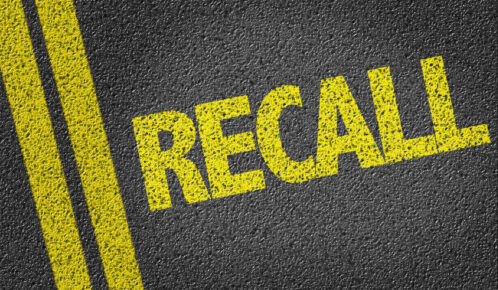If your workers’ compensation claim has been denied, delayed, or undervalued, one of the most powerful tools available to you as an injured worker is the Workers’ Compensation Appeals Board (WCAB). This state-level agency reviews disputes between employees and employers or insurance carriers when there’s disagreement about a workers’ compensation claim.
Table of Contents

In Illinois and other states, the WCAB—or its equivalent—is responsible for ensuring that injured workers receive the benefits they’re entitled to under the law. Understanding how the board works and how to navigate the appeals process is essential if you’re fighting for the medical care and compensation you deserve.
What Does the Workers’ Compensation Appeals Board Do?
The Workers’ Compensation Appeals Board functions as a legal forum for resolving disputes related to work injuries. If an injured employee files a workers’ compensation claim and the employer or insurance company disputes it, the WCAB can intervene to determine the appropriate outcome. Common issues reviewed by the board include:
- Denial of benefits
- Disputes over medical treatment
- Disagreements about permanent disability ratings
- Delays in receiving payment
- Petitions to reopen a case based on new evidence
In Illinois, this appeals function is handled by the Illinois Workers’ Compensation Commission (IWCC). While the terminology may vary from state to state, the role is similar: to serve as an impartial authority in contested workers’ compensation cases.
When Can You Appeal to the WCAB?
You can file an appeal with the Workers’ Compensation Appeals Board if you’ve already gone through a trial or arbitration hearing and received a decision that you disagree with.
For example:
- Your claim was denied, and you believe you have strong evidence that your injury is work-related.
- Your benefits were prematurely terminated while you were still unable to return to work.
- You disagree with the compensation amount, such as the extent of permanent disability awarded.
- Your medical treatment was denied, or you were required to return to work before your doctor cleared you.
An appeal is not a new trial—it’s a review of the existing case record to determine whether the judge’s decision was fair, legal, and supported by evidence. In some cases, new evidence may be submitted if it wasn’t reasonably available during the original hearing.
How the Workers’ Compensation Appeals Process Works
Appealing to the WCAB or IWCC involves several steps:
1. Filing a Petition for Review
The first step is filing a formal request for review, typically called a Petition for Review or Application for Reconsideration. This must be done within a strict deadline—often 30 days from the date of the decision. Missing this deadline can result in losing your right to appeal.
2. Review by the Appeals Board
A panel of board commissioners, usually three members, will review the case. They’ll examine the trial transcript, medical records, witness testimony, and any written arguments submitted by your attorney.
3. Oral Arguments (in some cases)
Although most appeals are decided on written records, in some cases, the board may request oral arguments. Your attorney will have the opportunity to explain why the judge’s decision should be reversed or modified.
4. Written Decision
The board will issue a written decision that could:
- Affirm the judge’s decision
- Reverse the decision
- Modify the outcome (e.g., increase or decrease your award)
- Send the case back for further proceedings or clarification
How Long Does the WCAB Appeal Process Take?
Appealing a workers’ compensation decision is not quick. While timelines vary by location and case complexity, most appeals take several months to resolve. If further hearings or new evidence are required, the process can take over a year.
That’s why it’s critical to work with a workers’ compensation attorney who understands the WCAB process. Our skilled legal team at Ankin Law can keep your case moving forward and protect you from missing important deadlines or procedural requirements.
Do You Need an Attorney to Appeal a Workers’ Comp Decision?
While it’s technically possible to represent yourself in a workers’ compensation appeal, hiring a work injury lawyer is recommended. These cases involve complex legal and medical issues, and the appeals process is filled with traps for the unprepared. Even small mistakes in how you present evidence or write your arguments can result in a denial.
An experienced workers’ compensation lawyer can:
- Analyze your original claim and identify legal errors
- Prepare persuasive arguments backed by medical evidence
- Navigate procedural rules and file all paperwork on time
- Advocate on your behalf before the appeals board
- Maximize your potential benefits
At Ankin Law, our attorneys have decades of experience representing injured workers in appeals before the Illinois Workers’ Compensation Commission. We know how to challenge unfair denials and fight for the full benefits our clients are entitled to under Illinois law.
What Happens If the Appeals Board Denies Your Claim?
If the WCAB or IWCC denies your appeal, that doesn’t necessarily mean the end of the road. In many cases, you can pursue further legal action, such as:
- Filing a petition for reconsideration with the board
- Appealing the decision to a state appellate court
- Negotiating a settlement with the insurer during the appeals process
Each level of appeal comes with its own risks and requirements, so it’s vital to weigh your options carefully with your attorney.
Know Your Rights, Protect Your Benefits
The Workers’ Compensation Appeals Board exists to protect the rights of injured workers—but the system isn’t always easy to navigate. Whether your claim was unfairly denied, your benefits were cut short, or you feel the outcome didn’t reflect the true extent of your injuries, appealing may be your best chance at justice.
Don’t let a denial define the outcome of your case. Contact Ankin Law in Chicago to schedule a free consultation and find out how we can help you take the next step toward the benefits you need to recover and move forward.




